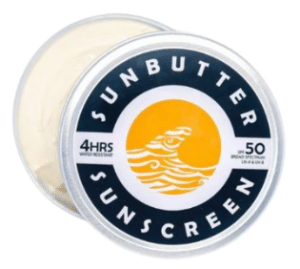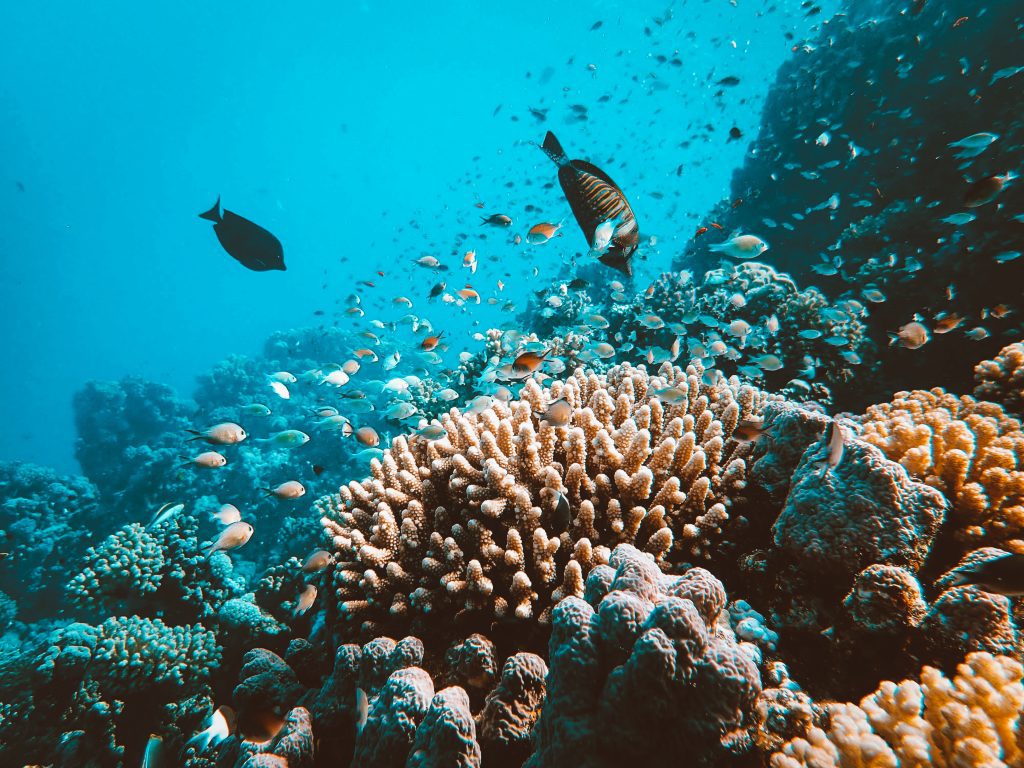Why Using Reef-Safe Sunscreen is Better for You and the Ocean?
Introduction
You’ve probably heard that sunscreen is essential to protect your skin from the sun. But did you know that not all sunscreens are safe for our oceans? Some sunscreens can harm the underwater world, especially coral reefs. In this blog, we’ll explain why it’s important to use “reef-safe” sunscreen and show you how to choose one that’s good for your skin and the environment.
Why Regular Sunscreen is Bad for Coral Reefs
Coral reefs are like the rainforests of the sea, teeming with life and incredibly important for our planet. However, they’re in trouble because of the chemicals in many sunscreens we use.
- Chemicals Like Oxybenzone and Octinoxate: Regular sunscreens often contain chemicals with names like oxybenzone and octinoxate. When you swim in the ocean with these sunscreens on, these chemicals can harm the coral. They make the corals turn white (which is bad), affect their ability to make more corals, and can even kill them.
- Tiny Particles Called Nanoparticles: Some sunscreens use really tiny particles called nanoparticles. While they can protect your skin well, they can also end up hurting sea creatures.
The Solution: Reef-Safe Sunscreen
Reef-friendly sunscreen is better because it keeps your skin safe without hurting coral reefs and the sea life. Here’s why you should consider using it:
- Minerals Instead of Chemicals: Reef-safe sunscreens use minerals like zinc oxide and titanium dioxide, which sit on your skin and block the sun’s rays without harming the ocean.
- They Don’t Stick Around: These sunscreens break down naturally in the water, so they don’t hang around to bother marine life.
- Better for Your Skin: They’re also often gentler on your skin, making them a good choice if you have sensitive skin or allergies.
How to Pick the Right Reef-safe Sunscreen
When you’re shopping for reef-safe sunscreen, look for these things:
- It Protects Against All the Sun’s Rays: Make sure it says it protects against both UVA and UVB rays.
- It Uses Minerals: Check the ingredients for zinc oxide or titanium dioxide.
- It’s Easy on Nature: Look for a sunscreen that says it’s kind to the environment or biodegradable.
- No Bad Stuff: Avoid sunscreens with things like oxybenzone, octinoxate, or parabens in the ingredient list.
- Waterproof: If you plan to swim or play in the water, get one that says it’s water-resistant.
Conclusion
Taking care of your skin and the environment can go hand in hand. By choosing reef-safe sunscreen, you can protect yourself from the sun and help keep our oceans’ coral reefs healthy. Making this switch is a small but important way to enjoy the sun responsibly, knowing that you’re doing your part to protect both your skin and our precious underwater ecosystems.
Our Pick
Our favorite reef-safe sunscreen is Sunbutter-Sunscreen which you can purchase on goforZero.

You might also like Protecting K’gari Fraser Island’s Biodiversity

